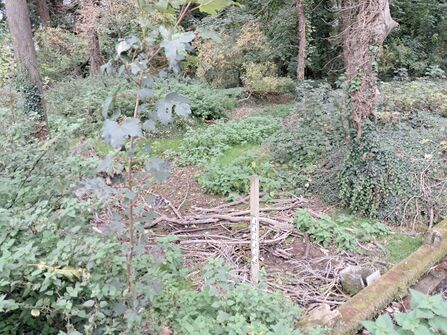
The image on the left taken recently shows the springs which should be supplying the Wilbraham River, but are completely dry.
March to August was the fourth driest period on record and the latest Environment Agency update shows soils still remain dry under the surface - many rivers are below normal levels with low flows across the Cam and Ely Ouse catchment area.
For a large part of Cambridgeshire the water in our taps comes from the same aquifer that feeds our chalk streams. When the aquifer levels are extremely low, it's more likely that chalk streams will dry up or that their whole flow will consist of treatment works outfall water. This has a massive impact on biodiversity - some species won't survive and will need to recolonise when flows return.
We all need to do what we can to reduce our water usage, especially now that aquifer levels are low and likely to be very low next year. Water companies need to get on top of leaks, but we can all do our bit by not wasting water at home. Skip washing the car, take a five minute shower and turn off the tap when brushing your teeth – every little helps.
We are working with water companies, local river groups, the Environment Agency and other partners to understand the condition of all the watercourses in the Cam catchment and to make them more resilient. Working with partners to create a catchment plan is a key part of this, but we are also involved with surveys - for example Riverfly surveying which is a way of using invertebrate surveys to monitor river health.
We are also working with Cambridge City Council through the Greater Cambridge Chalk Streams Project and Cambridge Water to plan and carry out river restoration on the Granta. These projects will have in-depth monitoring by ARU (Anglia Ruskin University) so that lessons can be learnt for future projects. We are also working with farmers through initiatives like the East Cambridge Farm cluster to think about water management on farms and how they can grow with water sustainability in mind.
It’s all to easy to forget the hot dry spring and summer months we’ve had now that we’re heading towards winter, but if those underground water reserves do not get replenished then nature will struggle whatever the weather. Let’s play our part locally, and keep the pressure on Government and water companies to play their part – our river wildlife needs us.
Ruth Hawksley is the Wildlife Trust BCN's Water for Wildlife Officer in Cambridgeshire.
Read more about the Greater Cambridge Chalk Streams project here
Ruth will be leading a workshop Introduction to Chalk Streams in June 2026. Book your place here.

